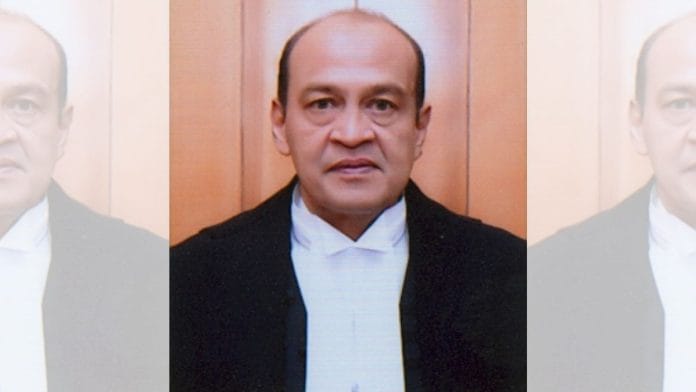New Delhi: Jute sacks full of cash, stashed in a corner of the outhouse at the residence of Delhi High Court Judge Justice Yashwant Varma, were allegedly spotted by firefighters and police on the night of 14 March as fire tenders worked to extinguish a blaze there.
But no official record or seizure of the cash was made after officials were told by the judge’s staff that the contents were merely “stationery and court papers” that had been damaged, ThePrint has learnt.
Atul Garg, director of Delhi Fire Department, has refuted reports of cash being found at the residence of Justice Yashwant Verma. “We only controlled the fire, and nothing unusual was reported there. The police were already present before we arrived. Fire department officials did not find any cash,” he said, contradicting earlier claims of a cash stash discovery.
What blew the lid, however, were videos and photos that the fire department had taken as part of procedure in any fire incident, showing the cash bags, that were eventually sent to the Chief Justice of India, Sanjeev Khanna, following which the action to transfer Varma was taken, multiple sources revealed.
“It was around 11.30 pm that the fire department received information about the fire. Two fire tenders were rushed to the spot and police, officials from the Central Public Works department also reached the spot. That is when the cash was seen stacked in jute sacks,” a police source said.
The fire, sources said, was in the outhouse in the lawn, where clerks of the judge usually sat to work. “No recovery of the cash was made either by the police or fire department,” the source added.
The fire fighters, after dousing the fire, usually make a note of things that were gutted in the fire but no cash was mentioned, sources revealed. When the fire started, Justice Varma was not at home but one of his close staff members reached the spot quickly.
“The judge’s staff who had rushed to the house after the fire started informed that among the things destroyed were stationary items and some court papers,” the source said.
Since no one had sustained any injuries, no FIR was filed in the matter by the police. A daily diary entry was made at the Tughlak Road Police Station about the fire.
The CJI has asked for a fact-finding report from Delhi High Court Chief Justice, which is the start of an in-house inquiry procedure. But as per sources in the top court, he had not received the report till last evening. Further course of action would be based on the report.
Also read: ‘We are not thrash bin’: Allahabad HC bar association on Justice Yashwant Varma’s transfer
What next?
Following this episode, the Supreme Court collegium led by Chief Justice Sanjiv Khanna Thursday recommended the transfer of Justice Yashwant Varma.
He is likely to be repatriated to his parent High Court, Allahabad, from where he was moved to Delhi in 2021, and may also be asked to resign later, ThePrint reported earlier.
Though a formal decision has been taken on the transfer, the resolution on the same is yet to be uploaded on the Supreme Court website, as is the practice.
But what comes next? As per the Supreme Court’s landmark 1991 K. Veeraswami judgment, the police or CBI can initiate criminal proceedings following the public disclosure of allegations. Since these allegations constitute a cognizable offense, the law mandates police action.
The direction for the same, however, will have to come from the Chief Justice of India.
“A case can definitely be registered by the CBI but the direction has to come from the CJI. Even the Lokpal cannot order a probe against a sitting judge,” a CBI source said.
The verdict had also held that sitting HC judges are subject to a probe under the Prevention of Corruption of Act (PCA) provided the investigating agency gets approval from the CJI. A court cannot take cognizance of an enquiry report if there is no previous sanction given by the head of the institution.
Based on information available with the CJI, he can also ask the police or CBI to conduct a preliminary enquiry into the matter, which is the stage before filing a formal FIR. This can lead to a registration of a formal FIR and a subsequent investigation.
This is an updated version of the report
(Edited by Zinnia Ray Chaudhuri)
Also read: Issue of ‘cash’ found at residence of judge raised in RS, Congress calls for judicial accountability






